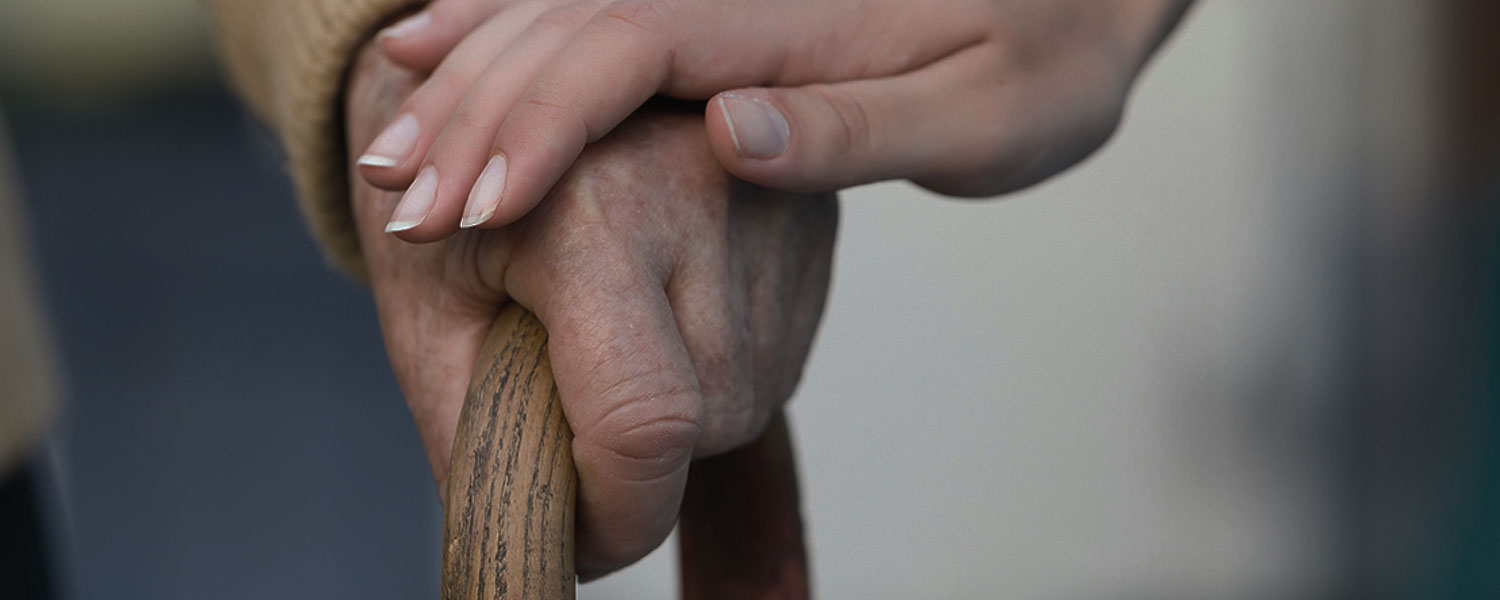Dehydration and Malnutrition
Residents in Nursing Homes Are At Higher Risk
Even though we expect a nursing home to meet the most basic needs of providing food and drink for our loved ones, malnutrition impacts 35 – 85% of residents in long-term care (LTC) facilities (nursing and assisted-living homes). Patients who experience dehydration that is not adequately treated will die in almost half of all cases. There’s a strong association between dehydration and poor mental functioning. Dehydration has also been shown to be a risk factor for stroke, infectious diseases, kidney stones, and severe constipation.
Unless you are dealing with a terminally ill resident at the end of his or her life, dehydration and malnutrition are entirely preventable. Experiencing dehydration or malnutrition is a warning sign of elder neglect and sometimes even elder abuse.
Dehydration
As we age, our bodies retain less water. This means that adults over 60 years old have less water to lose before becoming dehydrated. Dehydration in older adults can be caused by various factors, including altered thirst sensation (they can’t tell as easily when they are thirsty), greater use of medication, more disease processes, and less ability to drink themselves. Residents with dementia are particularly at risk for dehydration.
There are clear signs of dehydration, but nursing home employees often overlook, ignore, or misidentify the signs. Some of the warning signs for dehydration include:
- Headaches
- Fatigue
- Dizziness
- Dark urine
- Electrolyte imbalance (Sodium, BUN, and Creatine)
- Difficulty in swallowing
- Painful urination
- Confusion/delirium
The seriousness of dehydration lies not in the symptoms, but in the serious health conditions, it can cause or aggravate. Dehydration can cause or make worse:
- Kidney stone formation
- Bedsores
- Respiratory sickness
- Diabetes complications
- Infections (urinary tract infections are common)
- Seizures
- Severe constipation
- Cognition (decreased mental capabilities)
- Cancer
Severe dehydration can also be fatal. As such, preventing dehydration in nursing home settings is critical. Some of the interventions are relatively simple:
- Increase fluids at mealtime
- Increase fluids while taking medication
- Take necessary precautions against illnesses, such as the flu, that may cause fluid loss
- Maintain proper humidity
A dietician or doctor may also consider the resident’s appetite, the frequency of medications, and body weight. If dehydration is suspected, the nursing home has a responsibility to act quickly. Lab work should be performed and proper medical treatment should be implemented, which often requires IV-fluid intake with proper sodium levels.
Malnutrition
 Malnutrition is trickier to notice until it has occurred for a while. Often, residents eat plenty of food, but the food they are given is lacking in nutrients. They might be getting the right amount of calories, but without proper nutrition accompanying it, they can become seriously ill. Other residents are not actually getting enough food into their bodies, often due to issues with mobility or swallowing. Studies have shown a clear correlation between patients with dementia who are unable to feed themselves and malnutrition. Symptoms of malnutrition can include:
Malnutrition is trickier to notice until it has occurred for a while. Often, residents eat plenty of food, but the food they are given is lacking in nutrients. They might be getting the right amount of calories, but without proper nutrition accompanying it, they can become seriously ill. Other residents are not actually getting enough food into their bodies, often due to issues with mobility or swallowing. Studies have shown a clear correlation between patients with dementia who are unable to feed themselves and malnutrition. Symptoms of malnutrition can include:
- Weight loss
- Fatigue
- Dizziness
- Swollen and/or bleeding gums
- Fragile bones, muscle loss, weakness
- Mental decline and memory loss
- Bloated abdomen
- Dry skin
- Tooth decay
Malnutrition is a serious condition that happens all-too-frequently to nursing home residents. If left untreated, malnutrition can lead to:
- A weakened immune system, which increases the risk for infection
- Poor ability to heal, which can cause ulcers and bedsores to worsen
- Muscle weakness, which can lead to falls and fractures
A dietician or doctor may also consider the resident’s appetite, the frequency of medications, and body weight. But, once malnutrition is diagnosed, there are a number of interventions that can help. First, simply make sure the food is palatable. Most of us would become undernourished if we were presented with poor-quality food that is poorly prepared. Additionally, make sure the resident is being presented with food choices that coincide with their food preferences (for example, if your loved one hates tomatoes, ask that not only tomatoes not be served, but a quality alternate dish is offered). If the resident is having difficulty feeding herself, then make sure the resident has proper assistance. And do not rush the person eating. If the resident is having trouble swallowing her food, puree it and feed slowly. And if necessary, add nutritional supplements to food. Protein shakes and smoothies offer enjoyable ways to add calories and nutrition.
Nursing homes that do not adequately provide and administer the food and liquid needed for residents to remain healthy are abusing their residents. Malnutrition and dehydration point to neglect and abuse. If you suspect either of these conditions in your loved one, first seek further medical attention, and then consider contacting an experienced nursing home negligence attorney.
Nursing Home Neglect Lawyer
I have represented residents in nursing home abuse and neglect cases for the last 17 years. I have seen up close the devastating health consequences of dehydration and malnutrition. Nursing homes in Greenville and Upstate South Carolina are representative of nursing homes nationwide. If you have a family member who suffered the effects of nursing home negligence, I can help. Call me, Andy Arnold,for a free initial consultation: 864.242.4800.





